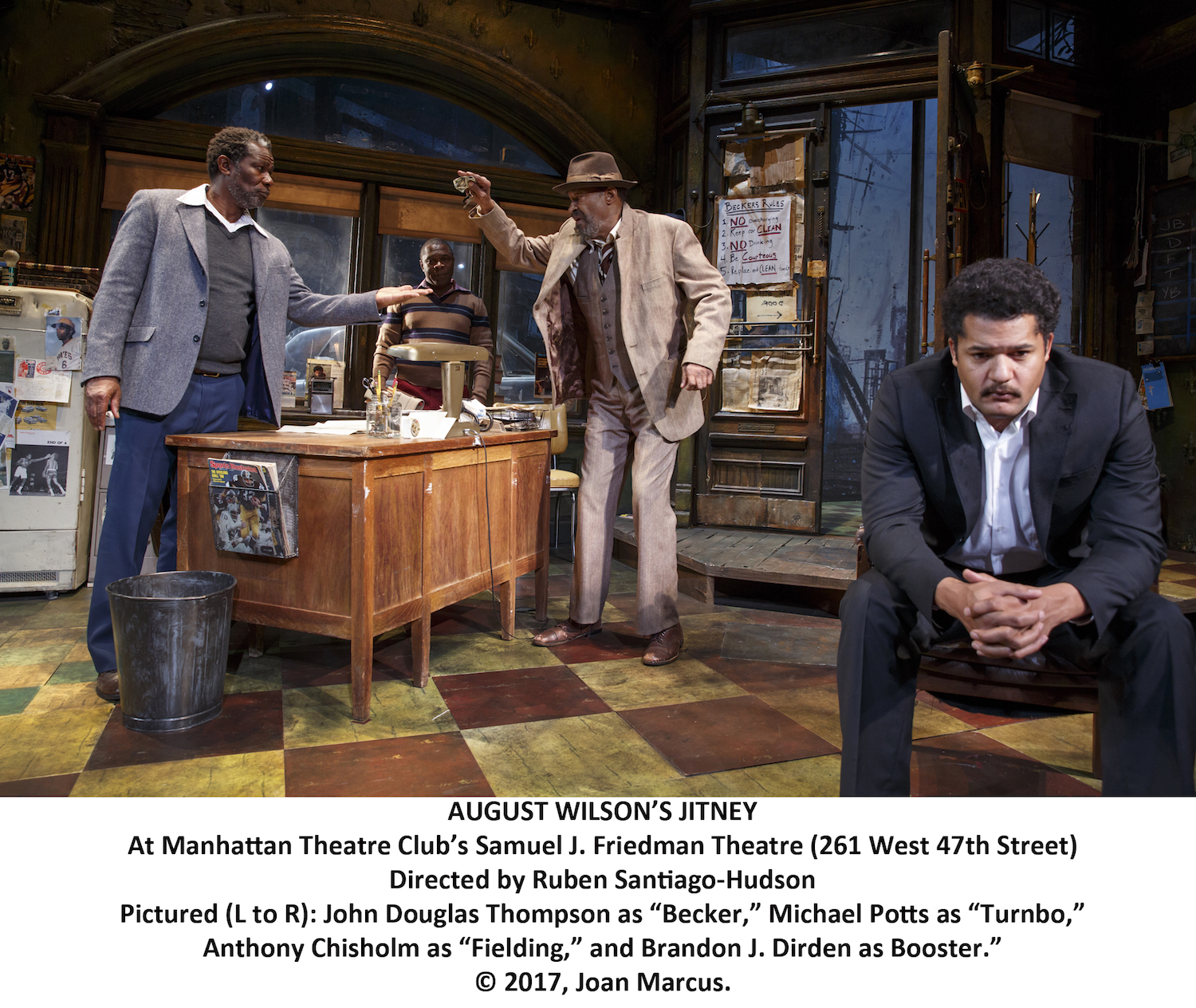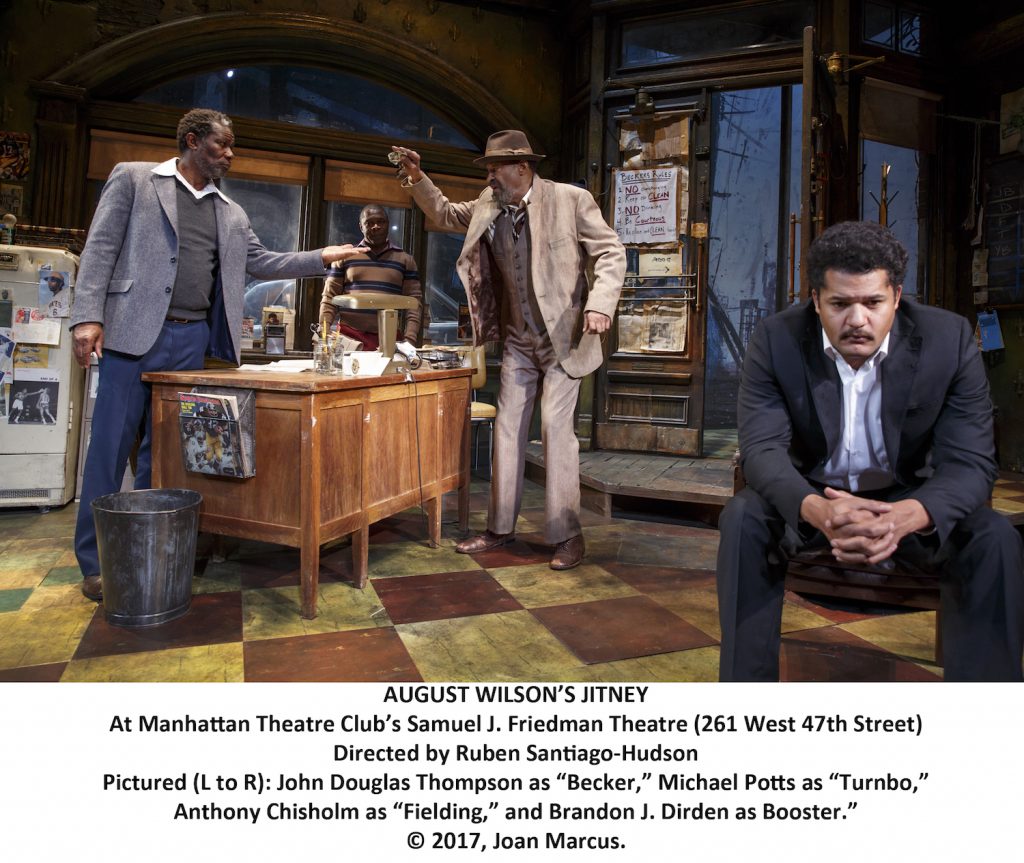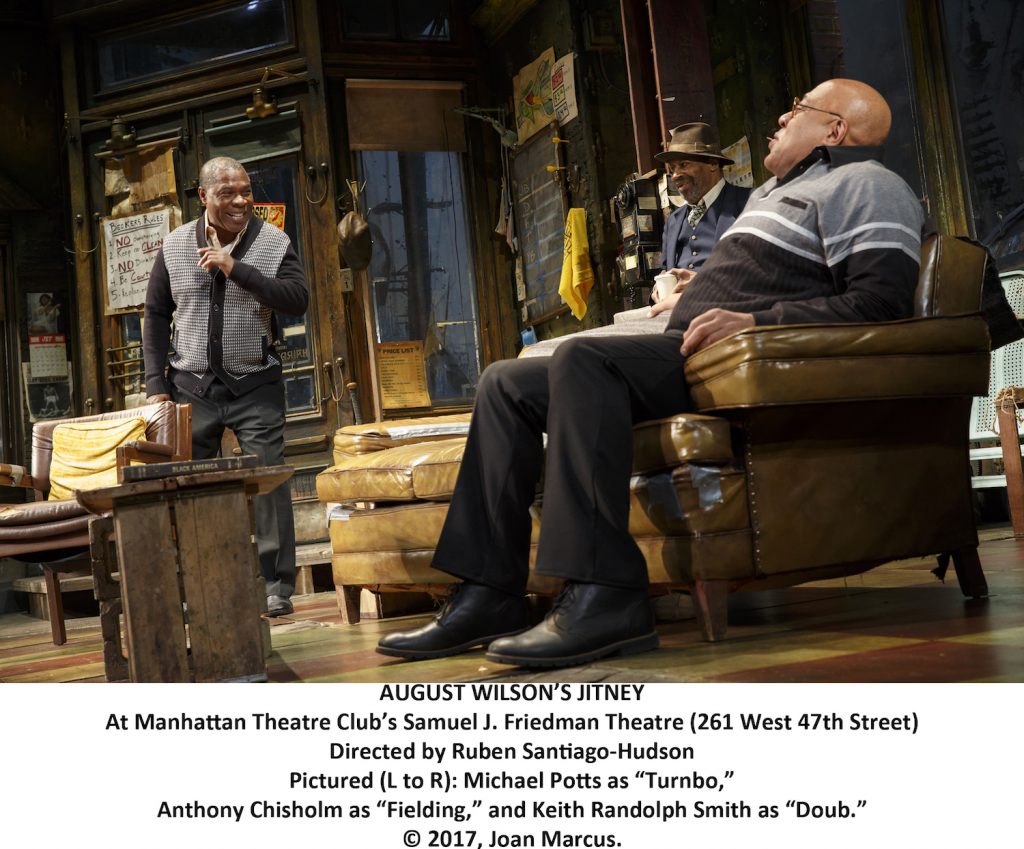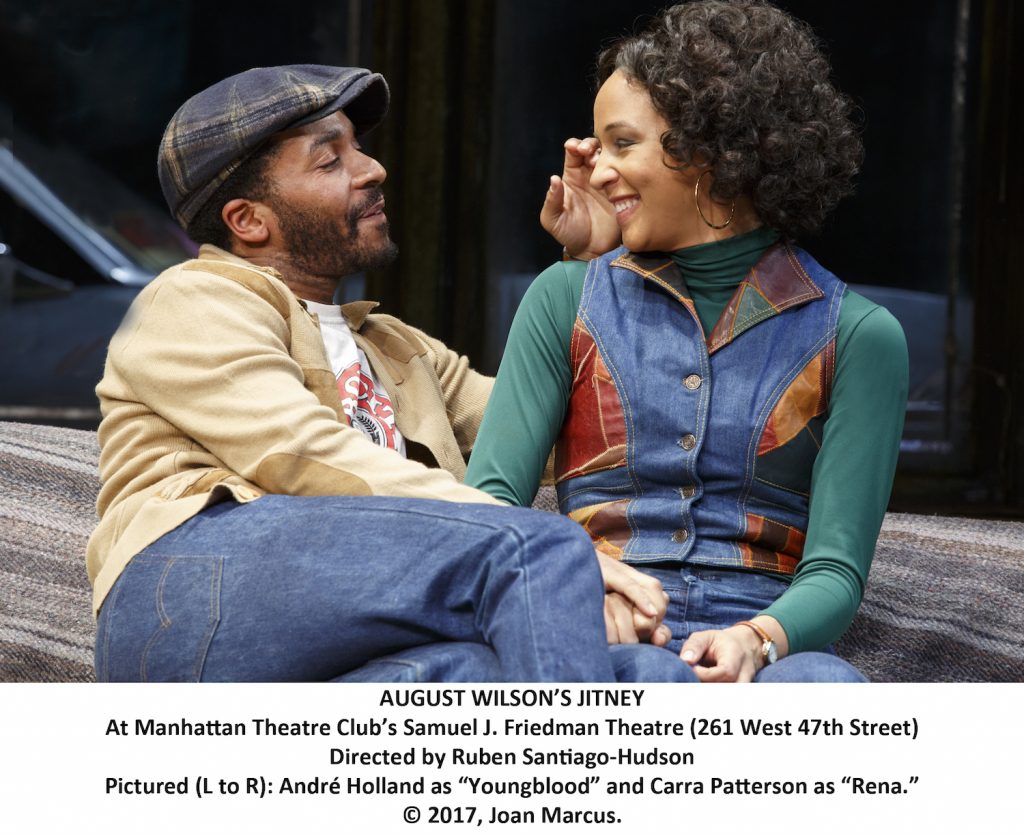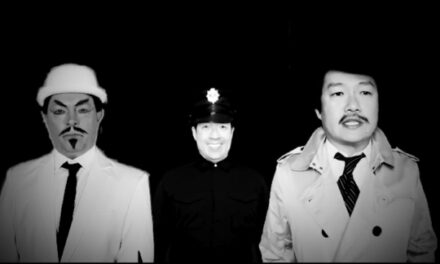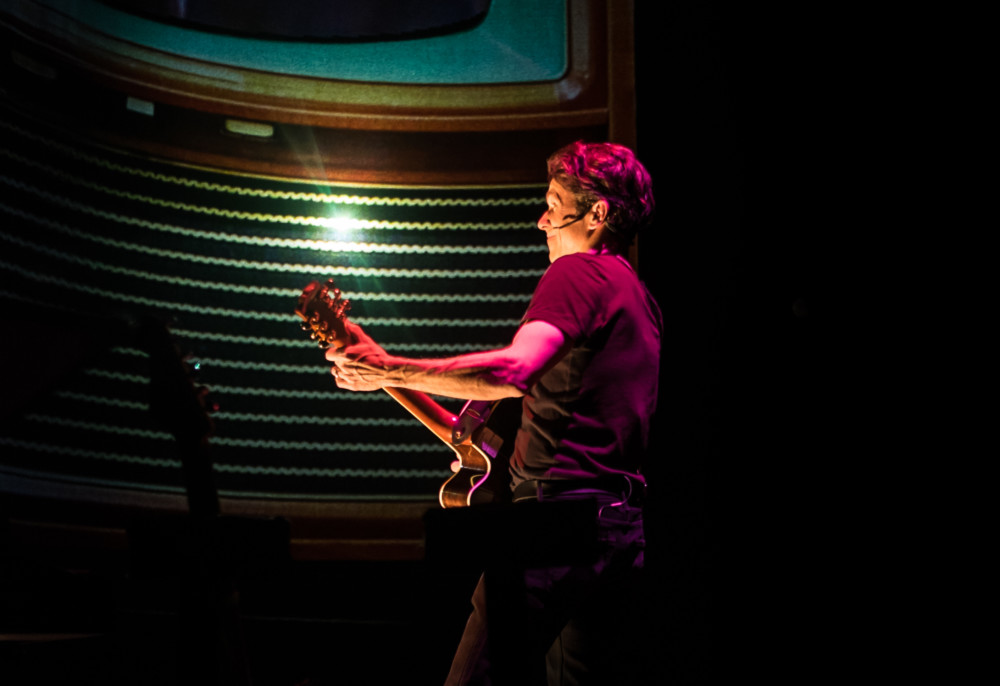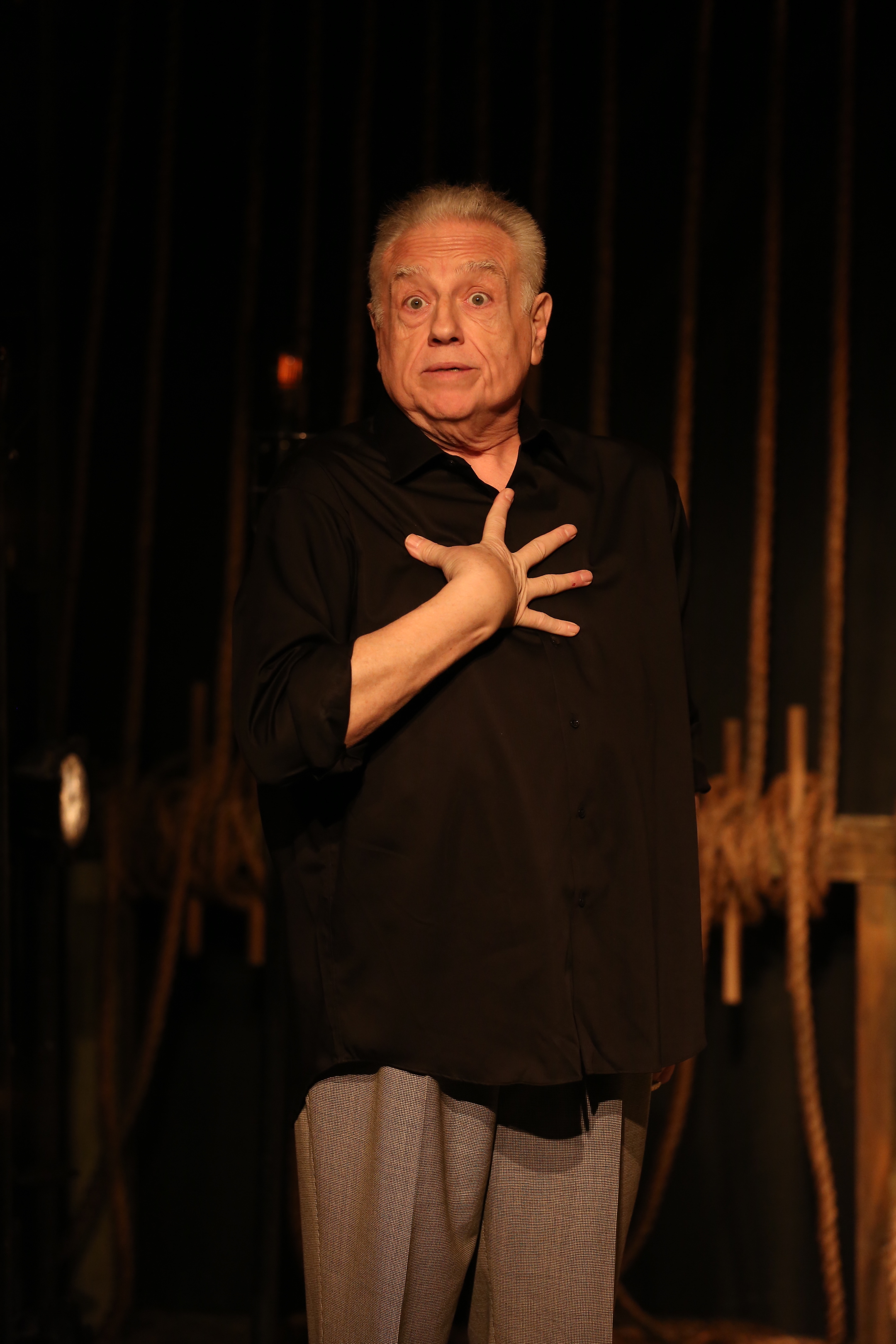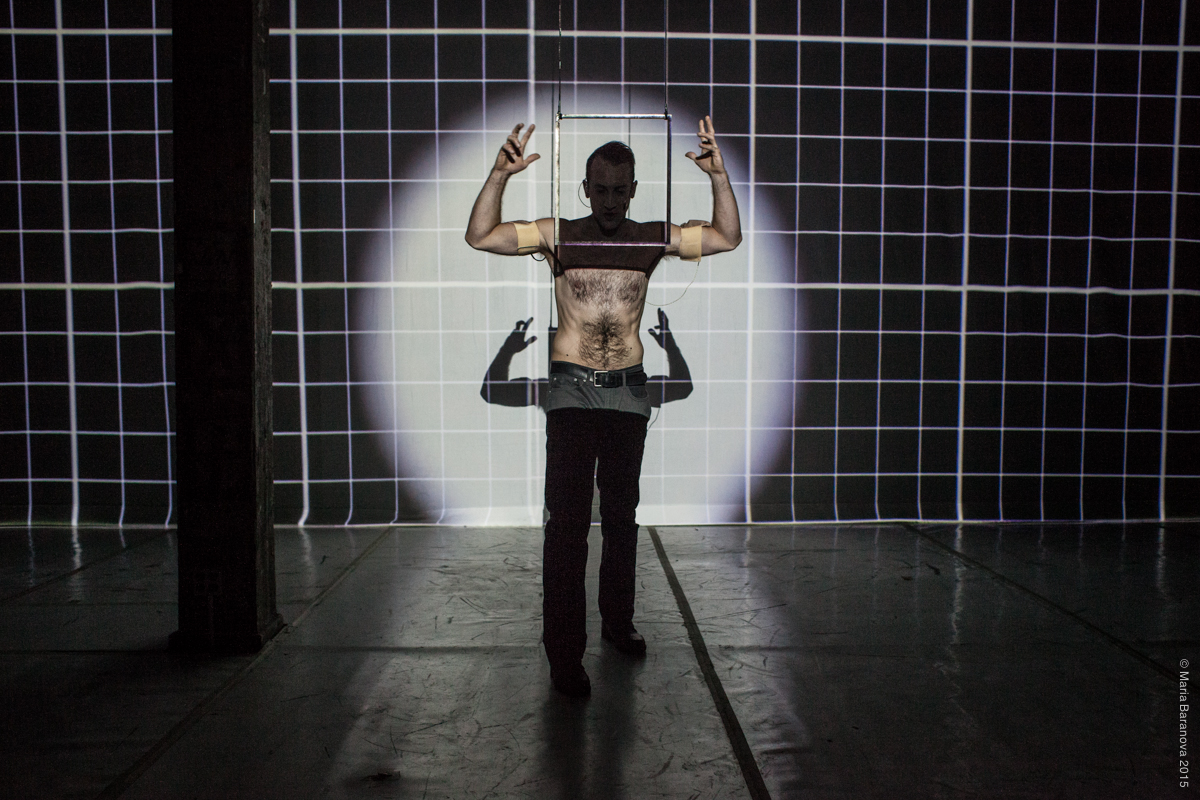by Michel Bracken
Remember leisure suits? Consider yourself lucky if you don’t, but either way don’t let that stop you from catching the sterling revival of August Wilson’s Jitney, produced by the Manhattan Theatre Club, at the Samuel J. Friedman Theatre.
Only Shealy (Harvy Blanks), a numbers runner with the strut of a fashion plate, actually wears a leisure suit. In fact, he wears two, one bright green (with white shoes) and one bright blue. (Get out your sunglasses.) But that’s more than enough for costume designer Toni-Leslie James to place us firmly in the 1970’s, 1977 to be exact. And, since this is one of the ten plays comprising Wilson’s American Century Cycle, each from a different decade of the twentieth century, we’re in Pittsburgh’s Hill District. That’s where Wilson placed all his American Century plays, with the exception of Ma Rainey’s Black Bottom.
Jitney’s is set in an expansive home base for a gypsy cab operation (scenic design by David Gallo). The room is well past its prime, with a tired couch, a tired refrigerator, and a beat-up car that can be seen through one of the upstage windows. There’s also a nondescript pay phone, the lifeblood of the room, since through it come the calls for cabs.
The business is run by Becker (John Douglas Thompson), an even-tempered boss who gives his drivers free reign until they need to be reined in, a not infrequent occurrence. But Becker’s cool quickly shifts into hot when his only son, Booster (Brandon J. Dirden) shows up, having just been released from prison. Becker blames Booster for his wife’s dying of a broken heart after Booster was sentenced to death (subsequently commuted). Booster blames Becker for not being there for her.
The youngest of the drivers is Youngblood (André Holland), a Vietnam vet trying to buy a house for his common-law wife (Carra Patterson) and their son. He’s constantly sparring with Turnbo (Michael Potts), whose oft-repeated refrain is that he minds his own business, while he shamelessly sticks his nose into everyone’s affairs, especially Youngblood’s.
Fielding (Anthony Chisholm), who likes to take a nip at regular intervals, Doub (Keith Randolph Smith), and Philmore (Ray Anthony Thomas) are the other drivers who drift on and off stage, exchanging gossip and opinions. Above them all hangs a cloud: the building that houses their jitney station is soon to be torn down.
Wilson’s characters are remarkably vibrant. While several are built around one defining trait (like Shealy’s always talking about an ancient flame who spoiled all other women for him), they’re not constricted by that trait; they’re multidimensional. The play finds its rhythm in the flow of the drivers as they come and go. Their driving jitneys allows for consistently natural entrances and exits with each ride completed or about to begin. Director Ruben Santiago-Hudson capitalizes on that flow, ensuring smooth and seamless transitions.
Hudson is also to be applauded for the remarkable ensemble cast he has assembled and guided. No one stands out because they’re all outstanding. They play off each other beautifully. Their banter is organic, laced with laughs and tinged with the struggle of getting through everyday life. Santiago-Hudson’s Jitney has one very minor flaw: a symbolic extension of hands into a light from above at the very end of the play. It’s just doesn’t jibe with the working-class grit of the drama, but it only lasts for a matter of seconds.
Until now, Jitney was the only play in the American Century Cycle not to have found its way to the Broadway stage. This splendid production gives it the wholehearted welcome it deserves.
Through March 12th at Manhattan Theatre Club’s Samuel J. Friedman Theatre (261 West 47th Street). www.ManhattanTheatreClub.com. 2 hours, 30 minutes with one intermission.


